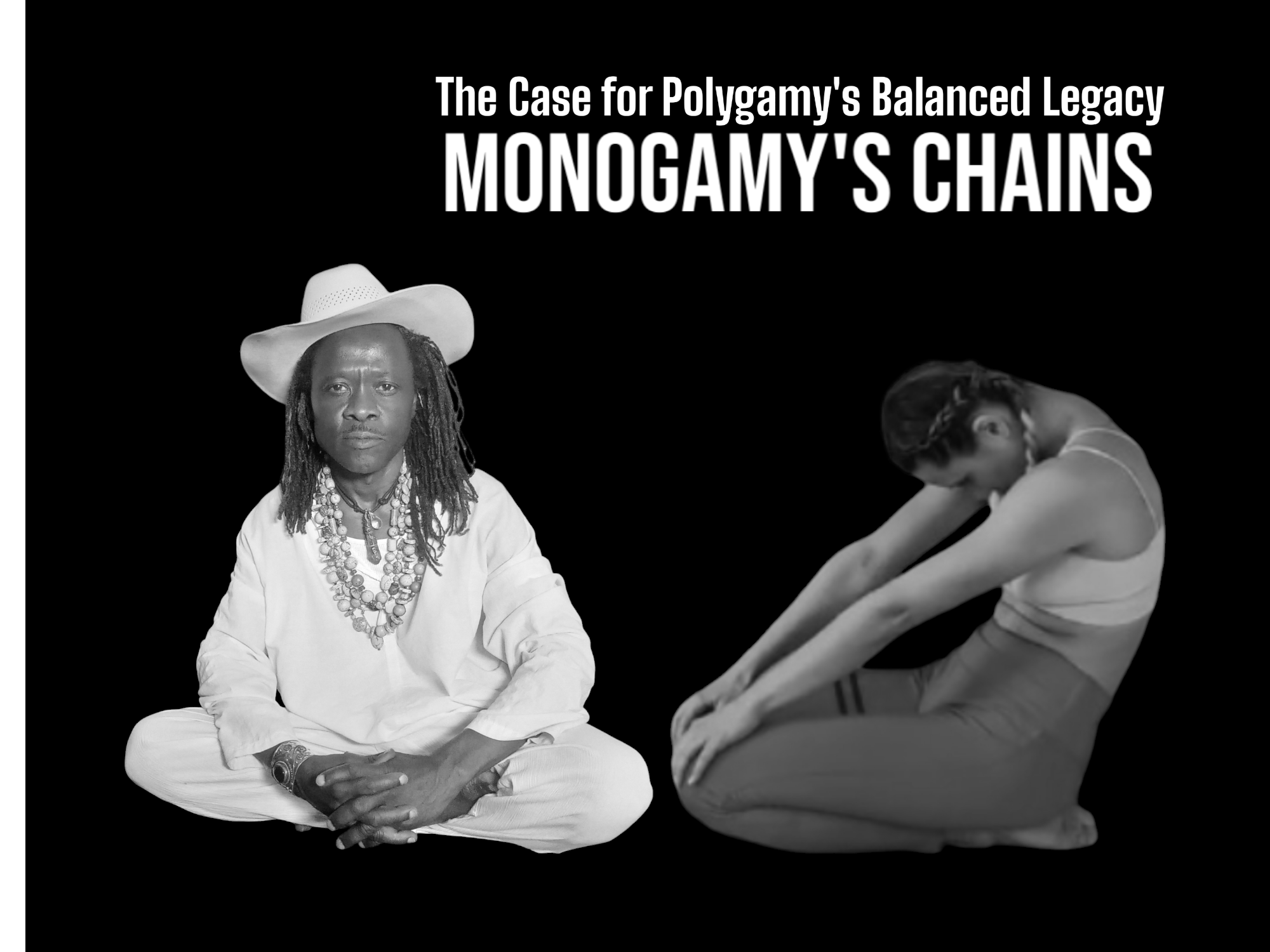Read Our Blogs

MonogaMonomgamy's Chains: The Case for Polygamy's Balanced Legacy
Admin abcd 0 comments
In the great expanse of time, human societies have always been in search of balance, freedom, and fulfillment. Monogamy, often praised for its simplicity and exclusivity, has been at the center of this quest. Yet, like a vine climbing towards the sun, it has also entangled itself around the neck of many men, choking the very essence of freedom and balance it promises.
Monogamy has become, for many men, a battlefield masked as love. Historically, African traditions recognized the importance of a man being surrounded by more than one partner, not as a sign of conquest, but as a reflection of nature's diversity and a means to sustain equilibrium. Our ancestors, wise as the roots of the ancient baobab tree, embraced polygamy,
understanding it to be a natural expression of abundance and balance in a man’s life.
In monogamous relationships, a man often finds himself confined within the walls of a single partnership, bound to the will of one woman. The stories of broken homes, of men reduced to mere shells after divorces, echo across generations. Women, realizing the power monogamy bestows upon them, have learned to wield it as a weapon. In marriage, they gain a monopoly
over the man's emotional and financial wellbeing. When they choose to leave, they take not only their children but also the man's peace, taxing him with child support, leaving him to walk the barren fields of loss.
Is this what the sacred union was meant to be? For the man, monogamy has become a chain—one forged not from love, but from societal expectations and legalities that tip the scales against him. It is a battlefield where love is a sword, and divorce, the dagger that strikes from behind. "Why suffer alone?" our ancestors would have asked. "A tree does not bear a single fruit and call
itself bountiful."

In contrast, polygamy offers a different narrative. It creates a dynamic where women compete for the man’s affection and respect, ensuring no one woman holds absolute power. African ancestral wisdom embraced polygamy as a way to create balance—a family structure where a man's legacy could flourish through multiple children, and his power would not be held hostage by
a single partner. Should one woman choose to leave, others remain, the lineage continues, and the man's influence stays intact. This multi-branching tree of life ensures the man’s heritage is not easily uprooted.
African societies valued this structure because it was more aligned with the natural order of life. Monogamy, however, often finds men on the losing side of battles they never asked to fight. They become victims of a system where a woman’s departure becomes a financial ruin, a theft of children, and a fracture of his very soul. Polygamy, however, presents an arena of multiple balances.
It is not the chaos that many fear, but a tapestry woven with strands of competition, cooperation, and continuity.
Balance, as highlighted in the Ashingne tradition, is essential for navigating life's complexities. Just as energy flows through the mind, body, and spirit, so too must a man's life flow through a diverse network of relationships. In polygamy, a man can mentor, coach, and create a more harmonious household, free from the tyranny of monogamous insecurity. This mirrors the essence of the
Ashingne tradition, which teaches that balance and flexibility in life are key to overcoming adversity.
Longevity and well-being, tied so closely to social connections and the quality of relationships, thrive in environments where diversity and resilience are present. Polygamous arrangements offer a kind of social insurance. The man has many branches, so that when one bends or breaks, the others remain, supporting him through life's storms. Historically, this has been a way to
maintain balance and a safeguard against the emotional and financial ravages of monogamy's failings.
Monogamy, in contrast, has often placed the man in a position where, when his single tree falls, there is nothing left but barren land. This is not to say that monogamy has no merits; it certainly has offered simplicity and exclusivity. However, in a world where relationships are fraught with power struggles and the whims of changing desires, it seems to fail more often than it
succeeds. Many men, entrapped by monogamous expectations, have found themselves casualties in a war they did not choose—a war where love becomes a weapon of control rather than a sanctuary of support.
Polygamy, therefore, emerges not as a simple indulgence, but as a means of creating a balanced and resilient family structure. It aligns with African ancestral wisdom, which views life as a web of relationships that must be maintained and nurtured. Men, surrounded by multiple women, find themselves in a position not of dominance, but of guidance and balance. They become
mentors, creating harmony amidst competition, leading a household that does not hinge on the decisions of a single partner.
In this light, monogamy appears as a one-way road, often ending in pain and loss. Polygamy, however, offers a network of pathways, where the man’s journey continues regardless of the challenges faced by individual relationships. It is not the chaotic maelstrom that monogamous societies fear, but a natural order, where balance and harmony are achieved through diversity
and shared responsibilities.
So, as we reflect on the wisdom of our ancestors and the realities of modern relationships, it becomes clear: the fruit of a man’s legacy grows best when nourished by multiple roots. Monogamy, with its promises of exclusivity, has often led men into the clutches of loss and despair. Polygamy, embraced by African traditions, provides the man with resilience,
continuity, and the opportunity to thrive amidst the inevitable storms of life. In this structure, the man is not at the mercy of a single woman, but finds his peace in the balance and competition that a polygamous household fosters.
Let us then revisit the paths our ancestors laid, and reconsider the structures that lead not just to survival, but to a thriving life filled with abundance, resilience, and a lasting legacy. In the garden of life, a single tree may bear fruit, but an orchard flourishes with the strength of its diversity.
Hashtags: #RelationshipBalance #AncestralWisdom #PolygamyTruth #AfricanTraditions #LegacyOfMen #BalanceInLife #FreedomAndFamily #RelationshipDynamics #WellbeingAndLongevity #AshingneTradition










